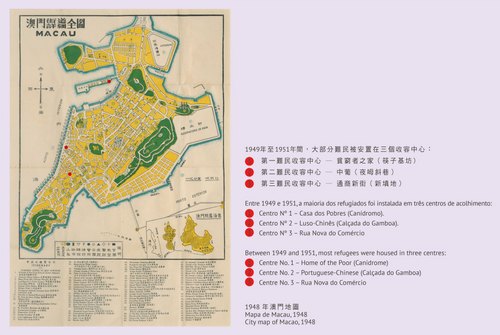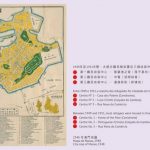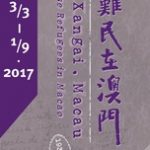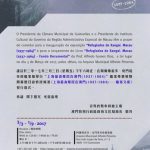 City map of Macao, 1948
City map of Macao, 1948
The exhibition “Shanghai Portuguese Refugees in Macao (1937-1964)”, organized by the Macao Archives under the auspices of Cultural Affairs Bureau, will be held in the Alfredo Pimenta Municipal Archives of the Municipality of Guimarães, in Portugal. The exhibition’s opening ceremony will be held on Friday, 3 March 2017, at 6pm (local time). On the same day, the documentary book “Refugiados de Xangai. Macau (1937-1964)” edited by Portuguese historian Professor Alfredo Gomes Dias will also be launched.
Since the mid-nineteenth century, Macanese groups migrated to different parts of the world. and Hong Kong and Shanghai had been the major destination cities of these Macanese. Due to the Japanese invasion of 1937, World War II, the Chinese civil war and other factors, the Macanese were forced to leave Shanghai and seek shelter in Macao. Some of them later settled in Macao and others stayed in the enclave for some time before they continued their journey to other destinations like North America (United States and Canada), Brazil, Portugal, Angola and Mozambique. The Macao Archives hold a few thousand records related to this topic. This exhibition showcases a selection of over one hundred records that illustrate the historical background of the Macanese diaspora around the world, the social inclusion of the Macanese in Shanghai, the journey of the Portuguese refugees to Macao and the aid they received here, as well as documentation and materials, including personal items of one of the Shanghai Portuguese refugees, Clementina Fernandes.
The exhibition “Shanghai Portuguese Refugees in Macao (1937-1964)” was held previously at the Macau Scientific and Cultural Centre in Lisbon. It will be open at Alfredo Pimenta Municipal Archives from 3 March to 1 September 2017. This exhibition is a manifestation of the friendly cooperation and resources sharing between cultural institutions in Portugal and Macao and an example of the growing Luso-Chinese cultural exchange.
View gallery



